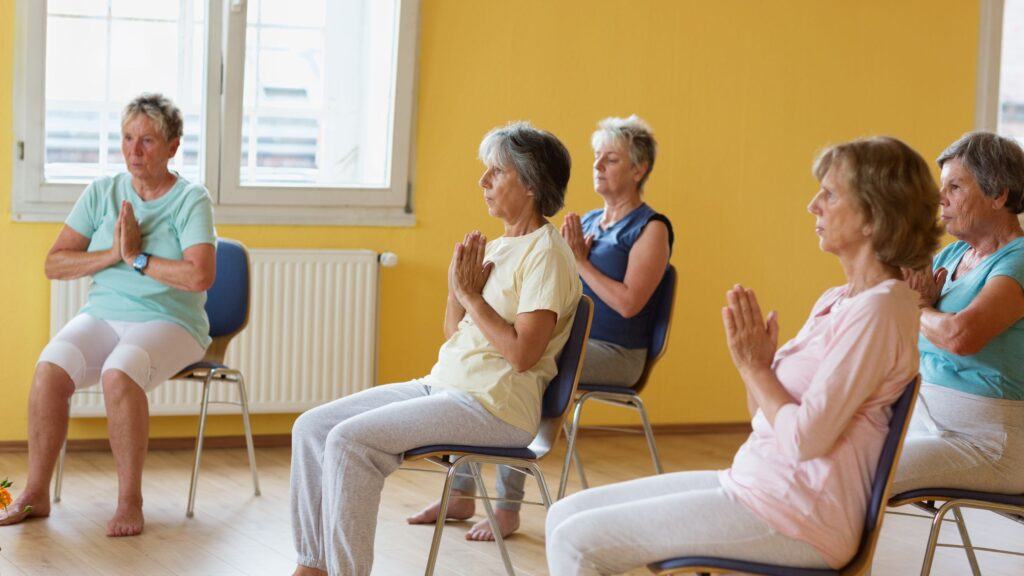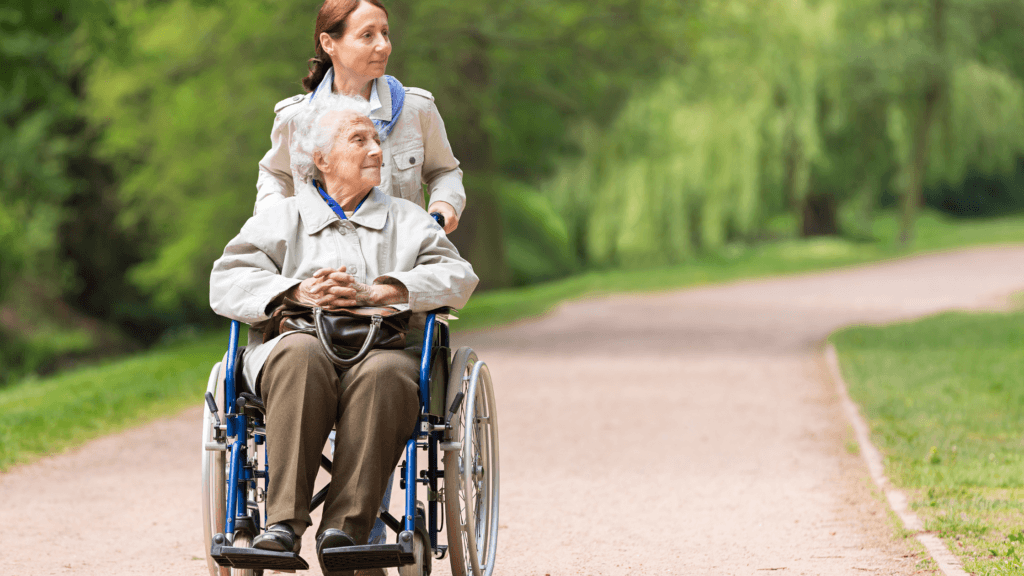Today, we’ll be discussing a topic that is near and dear to many seniors and their families: assisted living. Assisted living is a fantastic option for those who need a little extra help with daily tasks but still want to maintain their independence. It offers a perfect balance between providing support and allowing seniors to continue living life on their terms.
Maintaining independence is incredibly important for seniors in assisted living. It contributes to their overall well-being, self-esteem, and happiness. By fostering a sense of autonomy, seniors can continue to enjoy a fulfilling and active lifestyle, even as they receive assistance with certain tasks.
In this blog post, we’ll be sharing some practical tips and strategies to help seniors maintain their independence while residing in an assisted living community. From personalizing their living space to embracing technology, these suggestions will empower seniors to live life to the fullest in their new home. So, let’s dive in and explore these valuable tips together.
Personalizing Your Living Space
One of the first steps to maintaining independence in assisted living is to make your living space truly feel like home. We encourage residents to bring along their personal items, cherished mementos, and even furniture that holds special meaning. By surrounding yourself with the things you love, you can create a familiar and comfortable environment that reflects your unique personality and style.
There are numerous benefits to personalizing your living space in assisted living. First and foremost, having a familiar and cozy environment can help ease the transition to your new home. It can also provide a sense of stability and continuity, which is essential for maintaining independence. Additionally, a personalized living space can serve as a conversation starter with fellow residents, helping you build connections and friendships in your new community.
So, go ahead and fill your living space with your favorite photos, artwork, and cherished keepsakes. By doing so, you’ll not only create a warm and inviting atmosphere but also take an important step towards maintaining your independence in assisted living.
Staying Active and Engaged
A key aspect of maintaining independence in assisted living is staying active and engaged, both physically and socially. Physical activity is crucial for overall health, as it helps improve strength, balance, and mobility, which are all essential for maintaining independence. In addition, staying active can boost your mood, reduce stress, and promote a sense of well-being.
There are many activities and exercises tailored for seniors in assisted living that can help you stay active and engaged. These may include gentle stretching, chair yoga, water aerobics, or walking groups. Be sure to choose activities that you enjoy and are appropriate for your fitness level. Your assisted living community may offer a variety of group classes or organized events, so don’t hesitate to explore these options and find the perfect fit for you.
In addition to physical activity, social interaction plays a vital role in maintaining mental health and independence. Engaging with others helps keep your mind sharp and can ward off feelings of isolation or loneliness. Make an effort to participate in social events, join clubs, or simply strike up a conversation with fellow residents. Building connections and friendships within your community can greatly enhance your overall quality of life and sense of independence.
By staying active and engaged in both body and mind, you’ll be well on your way to maintaining your independence in assisted living. So, get moving, make new friends, and enjoy the many benefits that come from an active and engaged lifestyle!

Utilizing Available Resources and Services
Assisted living communities offer a wide range of services and resources designed to support seniors in their daily lives. By taking advantage of these offerings, residents can maintain their independence while receiving the assistance they need.
Utilizing the available services can help seniors maintain their independence by allowing them to focus on the activities they enjoy while receiving support for tasks that may have become more challenging. This balance ensures that residents can continue to live life on their terms, while still receiving the necessary care and assistance.
Some examples of services that can be particularly helpful in maintaining independence include:
- Transportation: Many assisted living communities provide transportation services for residents, making it easy to attend appointments, run errands, or visit local attractions. This allows seniors to continue participating in activities outside the community without relying on family members or friends for transportation.
- Medication Management: Proper medication management is crucial for maintaining overall health and well-being. Assisted living communities often offer medication management services, ensuring that residents take their medications on time and in the correct dosage. This not only promotes better health but also provides peace of mind for both seniors and their families.
- Housekeeping and Laundry Services: Keeping up with household chores can be challenging as we age. Assisted living communities typically offer housekeeping and laundry services, allowing residents to maintain a clean and organized living space without the physical strain of performing these tasks themselves.
- Meal Services: Nutritious meals are essential for maintaining good health. Assisted living communities often provide meal services, ensuring that residents have access to well-balanced, delicious meals without the hassle of grocery shopping, meal planning, or cooking.
By utilizing the resources and services available in your assisted living community, you can maintain your independence while receiving the support you need. This balance allows you to focus on the activities you enjoy and continue living life to its fullest.
Fostering a Sense of Control and Decision-Making
Involving seniors in decisions about their care and daily routines is essential for maintaining independence and promoting a sense of control. When residents have a say in their care, they are more likely to feel empowered and engaged in their own well-being.
The importance of involving seniors in decision-making cannot be overstated. By actively participating in their care, residents can maintain a sense of autonomy and self-determination. This involvement not only boosts self-esteem but also contributes to a higher quality of life.
Here are some tips for staff and family members to encourage residents to voice their opinions and preferences:
- Open Communication: Establish open lines of communication with residents, making it clear that their opinions and preferences are valued. Encourage them to share their thoughts and feelings about their care and daily routines.
- Active Listening: When residents express their opinions, take the time to actively listen and understand their concerns or preferences. This demonstrates that their input is respected and taken seriously.
- Inclusive Decision-Making: Include residents in the decision-making process whenever possible, allowing them to have a say in their care plans, daily routines, and activities. This can help foster a sense of control and independence.
- Offer Choices: Provide residents with choices whenever possible, whether it’s selecting meals, choosing activities, or deciding on a daily schedule. By offering options, you empower residents to make decisions that suit their preferences and needs.
- Encourage Independence: Support residents in maintaining their independence by encouraging them to complete tasks on their own when possible. However, be prepared to provide assistance when needed, ensuring that they feel supported but not overly reliant on others.
Family members and staff can help seniors maintain their independence by fostering decision-making and control over their lives. Remember, involving residents in decisions about their care is not only beneficial for their well-being but also a fundamental aspect of person-centered care.
Embracing Technology for Independence
Technology can play a significant role in helping seniors maintain their independence in assisted living. By embracing various devices and apps, residents can enhance their communication, safety, and daily tasks, ultimately promoting a greater sense of autonomy.
Here are some examples of technologies that can assist seniors in maintaining independence:
- Smartphones and Tablets: These devices can be incredibly useful for seniors, providing access to a wide range of apps designed to assist with communication, organization, and entertainment. Popular apps include video calling services (e.g., Skype, Zoom, or FaceTime), medication reminders, and brain-training games.
- Voice Assistants: Devices like Amazon Echo or Google Home can help seniors with daily tasks through voice commands. Residents can use these devices to set reminders, control smart home devices, ask for news or weather updates, and even make phone calls.
- Personal Emergency Response Systems (PERS): These wearable devices, often in the form of a pendant or wristband, allow seniors to call for help with the press of a button. PERS can provide peace of mind and increased safety for residents and their families, knowing that help is just a button press away.
- Smart Home Devices: Smart home devices, such as smart thermostats, lighting, and door locks, can make it easier for seniors to control their living environment. With these devices, residents can adjust the temperature, lighting, and security settings through a smartphone app or voice commands, promoting a greater sense of control and independence.
- Health and Fitness Trackers: Wearable devices like Fitbit or Apple Watch can help seniors monitor their physical activity, sleep patterns, and even heart rate. By tracking this information, residents can make informed decisions about their health and well-being.
By embracing technology, seniors in assisted living can maintain their independence and improve their overall quality of life. Whether it’s staying connected with loved ones, ensuring personal safety, or managing daily tasks more efficiently, technology can be a valuable tool in promoting autonomy and independence.

Building a Supportive Community
Forming connections with fellow residents, staff, and family members is invaluable for seniors in assisted living. A supportive community not only enhances the overall living experience but also contributes to a sense of belonging, emotional well-being, and independence.
Here are some suggestions for how seniors can build a supportive network within their assisted living community:
- Participate in Social Activities: Assisted living communities often offer a variety of social events and activities, such as group outings, game nights, or exercise classes. By participating in these activities, seniors can meet fellow residents, form friendships, and create a sense of camaraderie.
- Engage with Staff: Building relationships with staff members is essential for creating a supportive environment. Make an effort to get to know the caregivers, activity coordinators, and other staff members, as they can provide valuable assistance and companionship.
- Volunteer or Mentor: Some seniors may find fulfillment in contributing to their community through volunteering or mentoring. Sharing skills, knowledge, or experiences with fellow residents can be a rewarding way to forge connections and give back to the community.
- Establish a Family Communication Plan: Regular communication with family members is crucial for maintaining strong relationships and a sense of support. Establish a communication plan that works for everyone, whether it’s through phone calls, video chats, or in-person visits.
- Join or Start a Club: If there’s a particular hobby or interest that you’re passionate about, consider joining or starting a club within the community. This can be a great way to connect with like-minded individuals and create a sense of belonging.
- Be Open and Approachable: Sometimes, building a supportive community starts with simply being open and approachable. Make an effort to engage in conversations with fellow residents, share stories, and show genuine interest in their lives.
When seniors are able to connect with each other inside assisted living facilities, they feel a greater sense of community and emotional well-being. Strong connections with fellow residents, staff, and family members can make all the difference in creating a positive and fulfilling living experience.
Conclusion
In this blog post, we’ve explored various tips and strategies to help seniors maintain their independence in assisted living. These include:
- Utilizing available resources and services
- Fostering a sense of control and decision-making
- Embracing technology for independence
- Building a supportive community
By implementing these strategies, seniors and their families can work together to create a fulfilling and independent living experience within an assisted living community. Remember, maintaining independence is about finding the right balance between autonomy and support, and it’s achievable with the right approach and mindset.
We encourage you to embrace the potential for a fulfilling and independent life in assisted living. By actively participating in your care, staying connected with loved ones, and making the most of the resources and services available, you can continue to live life on your terms and enjoy a high quality of life.
If you’re interested in learning more about maintaining independence in assisted living or would like to explore your options, we invite you to connect with American Grand Assisted Living Suites in Neenah, WI. Our dedicated team is here to support you and your loved ones on this journey. Contact us today to learn more or schedule a tour of our beautiful facility.



